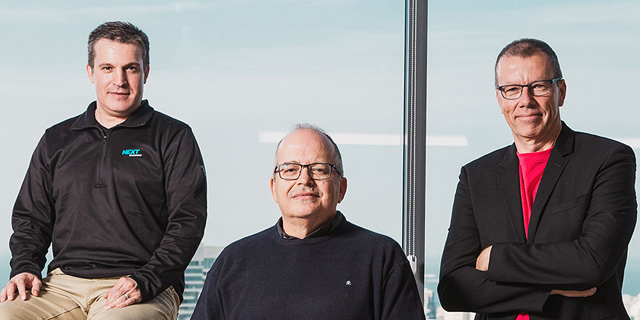
A Billion Dollars Or Bust
Unicorn School Lessons 7 and 8: Equity trumps salaries and the path to $100 billion companies
The founders of Tipalti, Gong, and Next Insurance, whose companies’ valuations have leaped beyond $2 billion offer insights and tips for building unicorns
A large number of private Israeli companies have achieved unicorn status in recent months, meaning that their valuation has hit above $1 billion. Calcalist’s Sophie Shulman sat down with some of the founders behind these highly valued companies for a series of eight lessons on how startups can reach this level, and what investors these days are looking for. Lesson #7 is all about equity over salaries, while lesson 8 is all about taking chances, and having luck.
Lesson 7: Equity not salaries are key
What’s keeping you from becoming profitable are salary expenses. In a previous lesson you mentioned doubling the workforce, but that means spending even more money.
“The three of us can agree that people who work at startups must value their equity (compensation allotted in company shares) over their salary,” Chen Amit, CEO of Tipalti said. “We pay our employees salaries that are on par with the rest of the tech industry, but even our employees have requested that we lower their salaries and increase their equity.”
CEO of Gong Amit Bendov noted that “though salary expenses have risen, we also have more customers to balance it out. Since we founded our company, the average salary here has increased by 20%, but sales have increased by far more. We pay our employees above average, and even provide decent equity. We just did a secondary shares sale, and only 40% of those who could sell their shares, chose to do so. The rest believe that their shares will be worth more later on.”
CRGO of Next Insurance Alon Huri added: “It’s important to me that employees come to us because of our equity, and because they believe that it will be worth 10 times more in a few years. When that happens is purely a technicality.”
Lesson 8: Quick tips - ingenuity and luck and fortune cookie wisdom
“We all have a big dream, but our feet are on the ground,” Bendov said, and Chen fine tuned the point, “we didn’t invent the wheel, but we possess sound reason.”
What are your tips for early entrepreneurs?
“Make mistakes quickly and cheaply,” Huri suggested.
“Hire people who know how to get it done, like (Facebook CEO) Mark Zuckerbeg who recruited Cheryl Sandberg as COO to fill the role of the responsible adult. Entrepreneurs above the age of 45 are the most successful.”
Amit added, “first you must find the perfect fit between product and market.”
How much of success depends on luck?
Amit: “Luck is very significant, that (investor) Oren Zeev would even consider me, that Citibank would even sign with me…”
Huri: “The more successful you are, the more luck you have.”
Where will you be in another couple of years?
Huri: “We’re working on building the next big thing. For entrepreneurs, this is like oxygen. We don’t only need to grow, but also to innovate.”
Amit: “We’re never satisfied, and we already have four new ventures. This is necessary in order to properly fit the market’s needs.”
And what of the Startup Nation and the field of high tech?
Huri: “For 10 years we’ve been hearing that the bubble is bursting. People said the coronavirus (Covid-19) pandemic would burst it, and that didn’t happen. It’s something real. The global growth trend is continuing, and within the next five years we could be talking about companies worth more than $10 billion.”
Bendov: “$10 billion is the new billion. And within the next five years, maybe there will also be Israeli companies worth $100 billion. Today, everything is technological, there is a historic shift and Israel is in the right spot. But we will face a shortage in high tech workers, since the country isn’t doing a good job.”
Amit: “Maybe one day we’ll finally be the ‘Grownup Nation.’”
Bendov: “Let’s mark it down in our calendars that within the next two years we’ll meet up, and check where we’ve gotten.”
